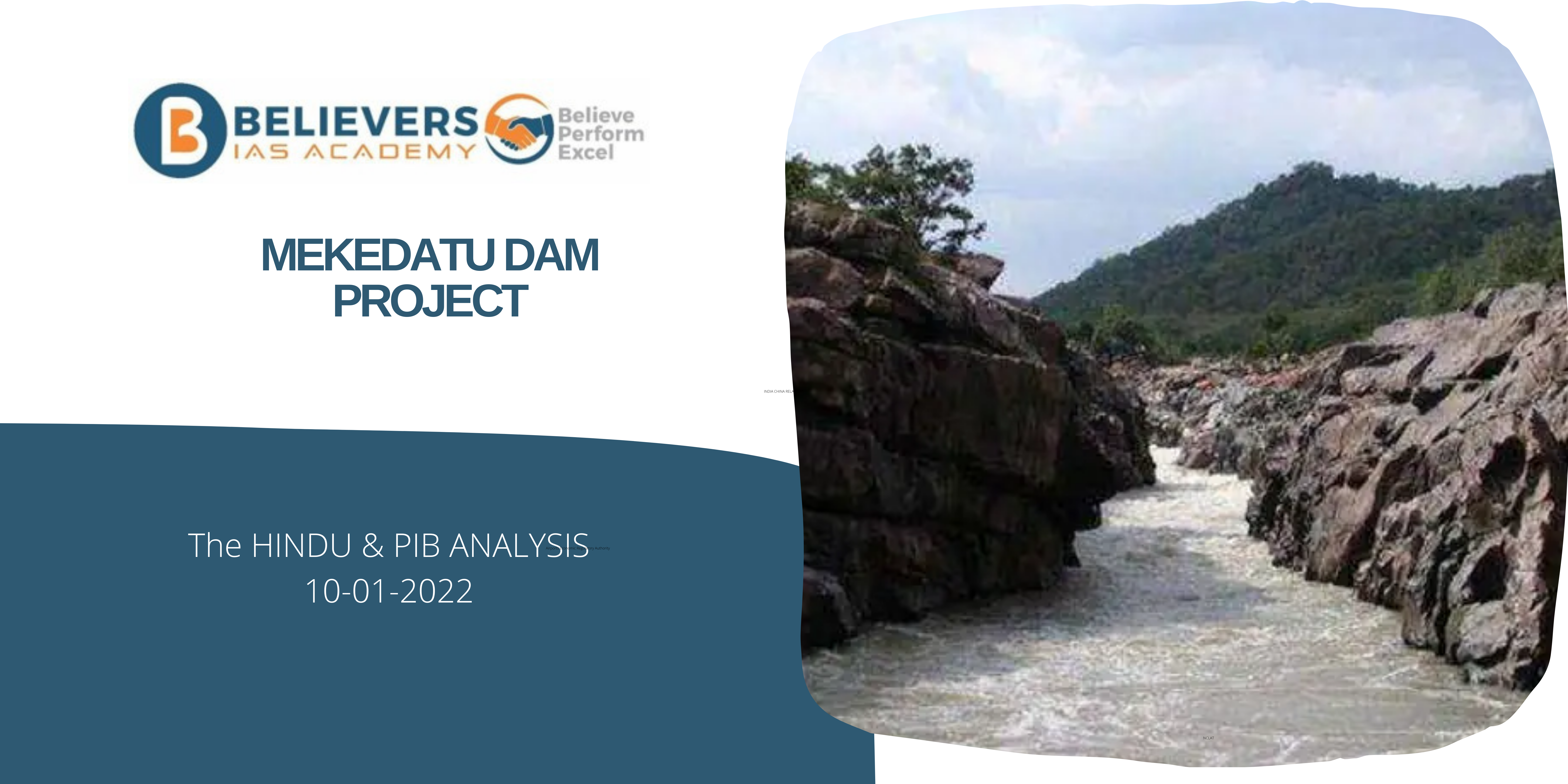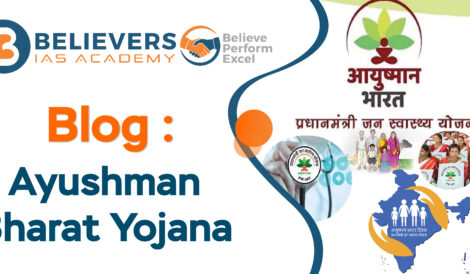- Posted on
- Daily Current Affairs
Background:
- The Centre recently assured Karnataka that construction on the Mekedatu dam project on the Cauvery river will not begin until the Cauvery Water Management Authority approves the project’s Detailed Project Report (DPR) (CWMA).
- There are also disagreements between the states of Karnataka and Tamil Nadu over the proposed project.
What is its location:
- The deep gorge of Mekedatu, which means “goat’s leap,” is located at the junction of the Cauvery and its tributary Arkavathi rivers.
Concerns about the Mekedatu project include:
- The project’s goal is to conserve and supply water for the city of Bengaluru’s drinking needs. The project is also expected to generate around 400 megawatts (MW) of electricity.
- Tamil Nadu, on the other hand, opposed, claiming that the project would disrupt the flow of Cauvery water into the state. Tamil Nadu further claims that the project violates the Supreme Court’s decision in the Cauvery Water Disputes Tribunal (CWDT), which said that no state can claim exclusive ownership of interstate river resources or assert rights to deprive other states of those waters.
About River Cauvery:
- The Brahmagiri Hill in the Western Ghats in south-western Karnataka is the source of the river.
- Tamil Nadu, with 43,868 square kilometers, Karnataka, with 34,273 square kilometers, Kerala, with 2,866 square kilometers, and Puducherry, with 2,866 square kilometers, make up the river basin.
- Hemavati, Lakshmantirtha, Kabini, Amaravati, Noyil, and Bhavani rivers are important tributaries.
- The Kaveri continues via a series of twisted wild gorges till it reaches Hogenakal Falls when it enters Tamil Nadu.
Dams: In Tamil Nadu, the Mettur Dam was built for irrigation and hydel power.
Source The Hindu




